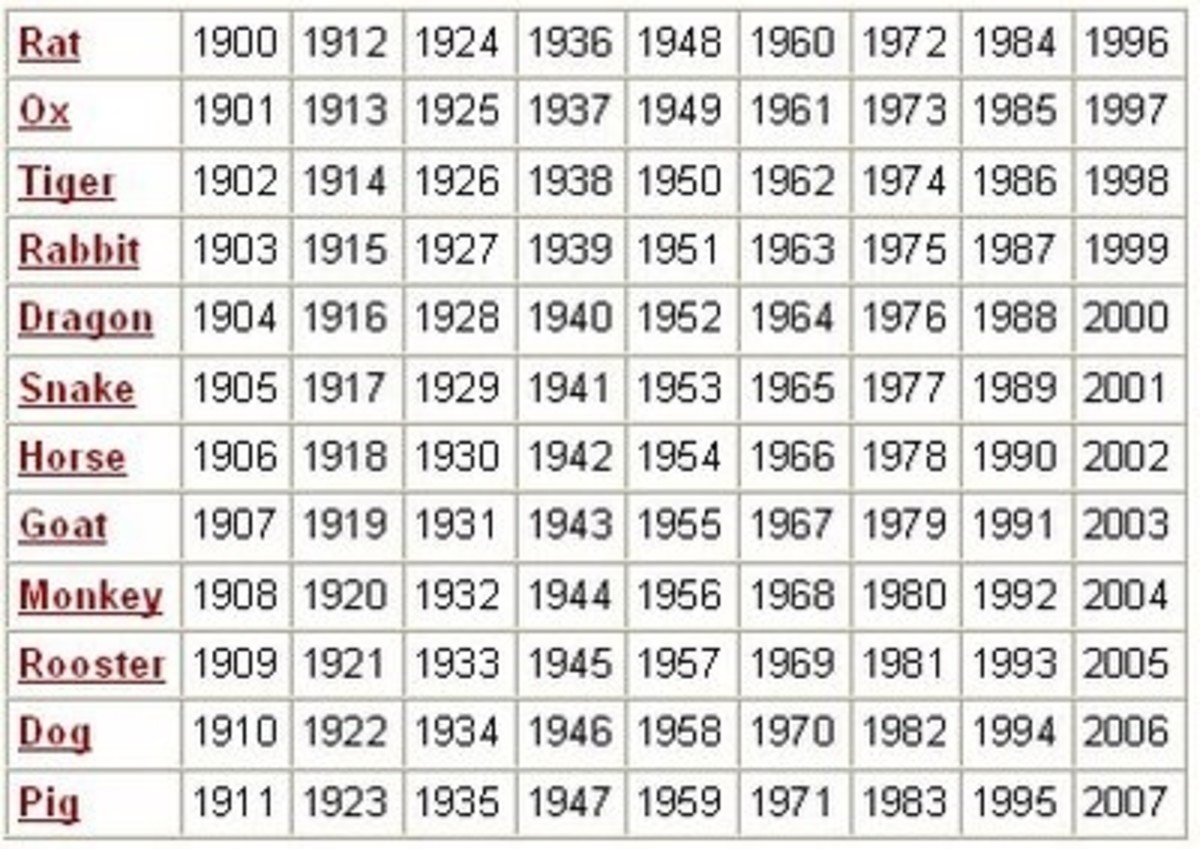- HubPages»
- Holidays and Celebrations»
- Asia Holidays»
- Chinese Holidays
Chinese New Year - The Year of the Ox
It is 4707 in the Chinese Calendar
January 26, 2009 is the beginning of the Chinese New Year celebrations. January 26 is the day in the western Gregorian calendar that marks the beginning the the year of the Ox in the Chinese calendar.
As reckoned by the Chinese calendar, which is the world's oldest calendar, the start of the year of the Ox marks the beginning of year 4707 which is the number of years that have elapsed since the Emperor Haung Ti introduced the calendar.
While China, like most of the rest of the world, uses the western Gregorian Calendar (which it officially adopted for business and civil use on January 1, 1912) which was instituted by Pope Gregory XIII in 1582 and bears his name, for civil and business purposes, the masses continue to use the Chinese calendar for holidays and festivals.
This is not uncommon as the Jews continue to use the ancient Hebrew calendar for religious purposes while using the Gregorian calendar for civil and business affairs as do many Orthodox Christians who continue to use the old Julian Calendar (named after the Roman Emperor Julius Caesar who instituted that calendar). which was the predecessor to the Gregorian Calendar, for religious purposes.
Each Year in the 12 Year Cycle is Named After an Animal
While the Gregorian Calendar is a solar calendar based upon the orbit of the Earth around the Sun which provides us with consistent dates for holidays, the Chinese calendar is a lunar calendar which is based upon the orbit of the Moon around the Earth.
Since the lunar month does not coincide exactly with the months in the solar year, dates tend to vary between the two calendars. Thus, the annual observance of the Chinese New Year tends to float between January 20th and February 20th when looking at it from the perspective of the Gregorian Calendar.
Our celebration of Easter is the same way because, as I described in my Hub entitled Why the Date of Easter Changes Each Year, the crucifixion and resurrection of Jesus, which is what Easter commemorates, took place during the Jewish Passover celebration, a holiday whose date is determined by the Hebrew calendar which, like the Chinese calendar, is a lunar rather than a solar calendar.
The Chinese calendar has a twelve year cycle in which each year in the cycle is named after an animal in the Chinese Zodiac. This year, 4707 (or 2009 by the Gregorian Calendar) is the Year of the Ox. The years following the Year of the Ox are the years of the Tiger, Rabbit, Dragon, Snake, Horse, Sheep, Monkey, Rooster, Dog, Boar and Rat. In 2021 we will be back to the Year of the Ox and the cycle will repeat itself.
The calendar that the Emperor Haung Ti originally introduced does not appear to have included these animal names for the years. This custom of naming years after animals in the Chinese Zodiac was introduced some time later.
Legends vary, but the most common one claims that, before his departure from the Earth, Buddha, invited all the animals on the earth to come to him before he departed.
However, only the twelve named above bothered to show up and, as a reward, Buddha named a year after each of them and decreed that people born during each animal's year would have some of the personality and behavioral traits associated with that animal.
Links to My Other Chinese New Year Hubs
- Chinese New Year Flowers and Fruit
As the Chinese New Year begins, homes blossom with traditional flowers and fruits. In addition to the decorative and festive effect, the fruits and flowers convey a rich and symbolic message. Each one has a... - Chinese New Year Custom of Lai See Gifts
Lai See is the custom of giving a gift of money in a special red envelope during the New Year's celebration. In the Chinese culture red is a lucky color. Both red and gold (which represents wealth) are popular... - Chinese New Year
The Chinese New Year festival is major celebration in the Chinese year. Preparations begin twenty-two days prior to the New Year and continue for fifteen days. Because the New Year is based upon a lunar (moon)...








